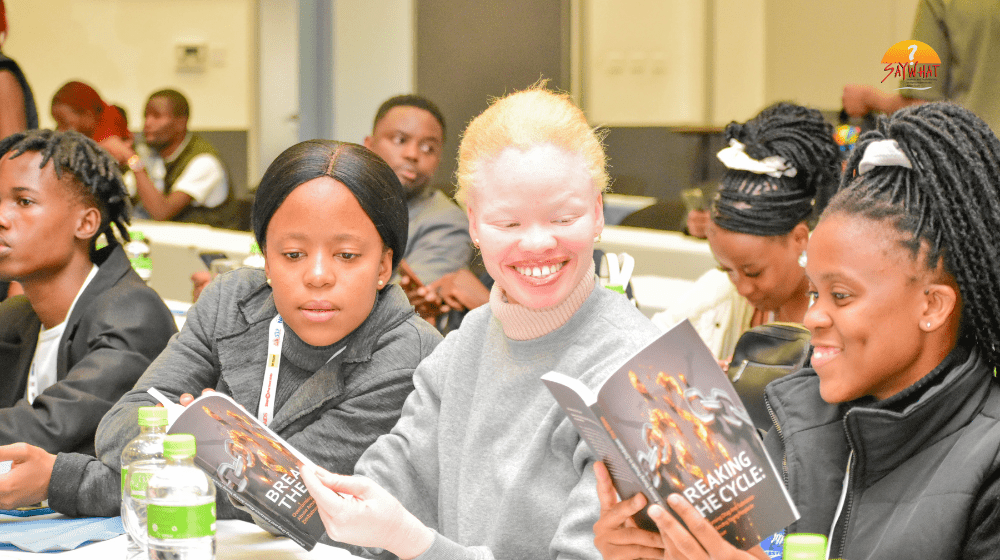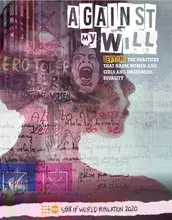Gaborone, Botswana: The UNFPA Botswana Head of Office, Ms. Tlangelani Shilubane-Pietersen, challenged young people to innovate, create, and explore new ways of advancing the SRHR agenda and urged them to continue amplifying their diverse voices to secure concrete commitments from duty bearers in their respective countries.
She made the call when addressing the participants at the fifth edition of the Southern African Regional Students and Youth Conference on Sexual and Reproductive Health (SARSYC), which was held in Gaborone, Botswana, from July 17–19, 2024. The conference brought together over 250 delegates, from Southern African countries, representing diverse groups, as well as experienced public health experts, development partners, and government officials.
Held under the theme "Building Bridges: Navigating Emerging Issues: Advancing Equitable Access to Public Health and Education," it sought to empower young people by providing a platform to meet with government and other development players to collectively find solutions to the myriad challenges they face. Young people within SADC often encounter similar challenges, including access to education, health care, unemployment, gender inequality, and climate change.
Participants also discussed the progress of the ICPD Programme of Action, adopted in 1994, which is a landmark agreement that recognizes the importance of sexual and reproductive health and rights for sustainable development. It calls for governments to take action to ensure that all people, especially young people, have access to comprehensive sexual and reproductive health services, including contraception, safe abortion, and post-abortion care. They highlighted that despite progress made in the implementation of the ICPD, thirty years later, young people in the region continue to face significant challenges in accessing sexual and reproductive health services. These challenges include stigma, discrimination, lack of access to information, and high costs of services.
A highlight of conference was the research indaba, where young researchers presented their findings on diverse topics including sexual reproductive health, juvenile justice, child welfare, tuberculosis, maternal health, and the role of artificial intelligence in education. This platform enabled valuable feedback from experts and spurred collaborative innovation to tackle contemporary challenges.
The conference culminated in the adoption of the "Gaborone Declaration," a communiqué outlining key recommendations and demands put forth by the delegates. It called on SADC Member States to take urgent action on health issues affecting young people and key populations through strengthened domestic funding and expansion of comprehensive, youth-friendly sexual and reproductive health services. This communiqué will serve as a valuable tool for young people to engage with policymakers and decision-makers and advocate for their sexual and reproductive rights.
Ms. Boemo Sekgoma, Secretary General of the SADC Parliamentary Forum, affirmed the significance of the declaration's concerns and pledged to consider and act upon them. She underscored the pivotal role of young people in driving change and shaping policies for a healthier and more equitable future.
One of the delegates, Amani Cassim, a young person from the University of Pretoria in South Africa, said she was happy to be attending the conference and was looking forward to learning from and interacting with her counterparts from other countries. She further said the meeting was a significant step towards ensuring that young people's voices are heard and their needs are met in the development and implementation of sexual and reproductive health and rights policies and programs in the SADC region. “It is such a fruitful and eye opening experience because we are learning and exchanging ideas with other young people with different cultural perspectives, which allows us to learn new things and see things differently, ”she said.
Another young person, Connie Kgalalelo from the University of Botswana said she was excited to be a part of the conference as it provided them an opportunity to contribute to the solutions through well-researched models, as shown through the research indaba. She said it's always imperative not to leave out the voices of the young people when important decisions and policies are made.
“This is such a great networking opportunity for me. I will definitely come out of this conference empowered and ready to empower other young people,” she said, beaming with a smile.
SARSYC 5 stands as a testament to the power of collaborative dialogue and youth engagement in addressing complex challenges. The conference successfully amplified youth voices, fostered knowledge exchange, and inspired collective action towards a brighter future for young people in Southern Africa.
UNFPA, through the East and Southern Africa Regional Office and the Botswana Country Office, supported the conference through both technical and financial assistance. UNFPA is a global leader in sexual and reproductive health and rights, and it works to ensure that all women and girls have access to quality health care, including family planning, safe abortions, and maternal health services.
Ms. Shilubane-Pietersen affirmed UNFPA's commitment towards realizing the full potential of adolescents and young people, noting that we can only achieve a greater impact through collaboration with them.



